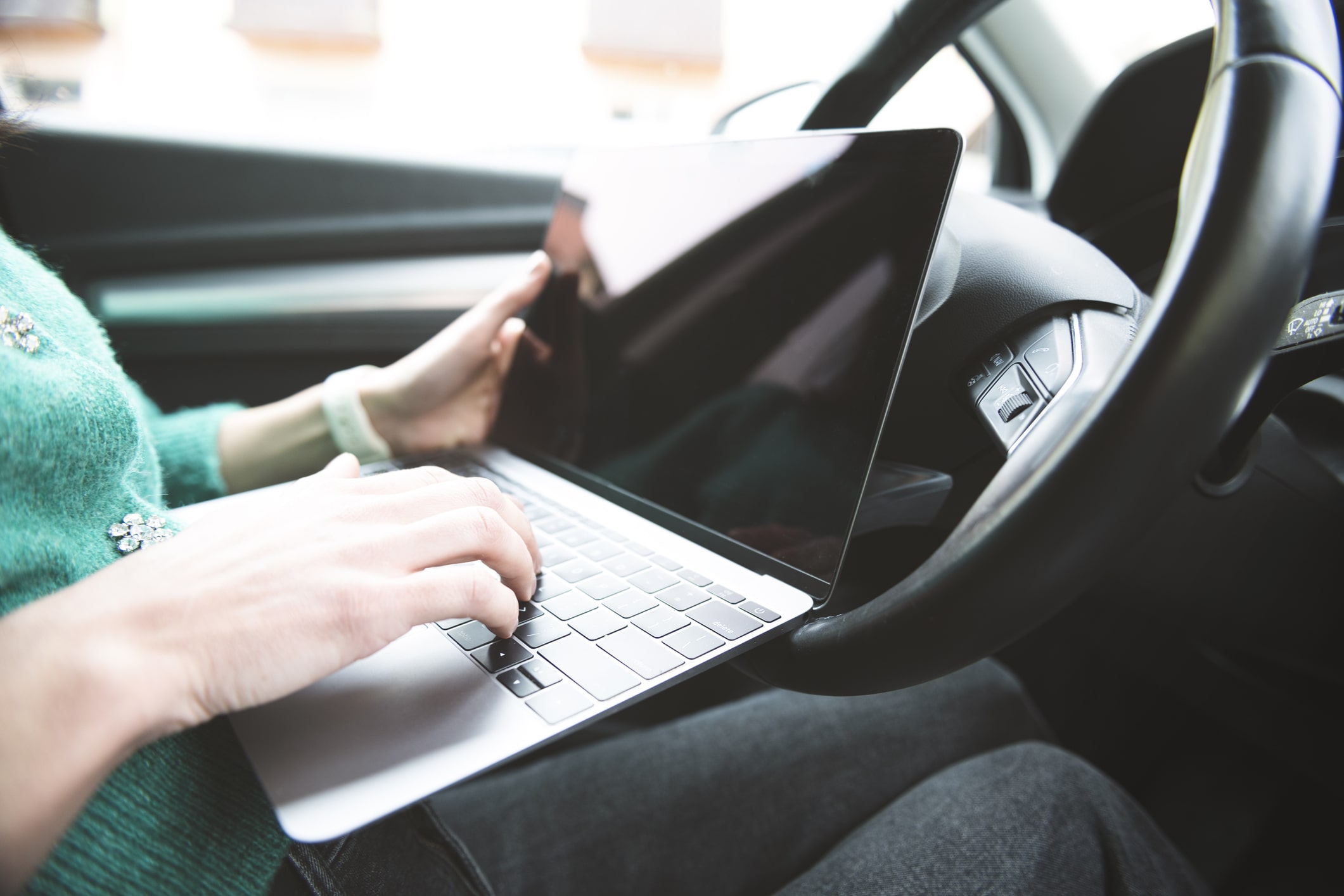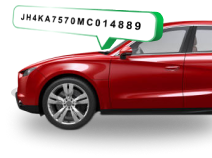West Virginia VIN Check


How to Perform a VIN Lookup in West virginia?
West Virginia VIN lookup involves searching a vehicle registered in the state for associated information and history using its vehicle identification number (VIN). Interested members of the public can look up vehicle records through their VINs using the Request for Vehicle Information System managed by the Division of Motor Vehicles (DMV). The system requires entering the requester's information, selecting the intended use of the vehicle information/report, and providing certain details about the vehicle, including VIN. However, this service comes at a cost, depending on the request type and how much information the requester wants. Unless you obtain written consent from the person whose records you are requesting, the DMV will redact personal identifying information.
Another way to perform a West Virginia VIN check online is by using a reputable online third-party website that offers access to the National Motor Vehicle Title Information System (NMVTIS) data. An example of such a website is GoodCar.com. To look up a West Virginia VIN with GoodCar, enter the vehicle's VIN into the appropriate field and select the search button. The search result will include the car's make, mode, year, transmission type, engine type, and market value. However, for a nominal fee, you can access more comprehensive details like accident history, sales history, mileage, title records, flood damage, recalls, salvage title, and more.
Why Should I Run a wv VIN Check?

There are several reasons to run a VIN check in West Virginia, particularly to make an informed decision when buying a previously used vehicle. Some of these reasons are outlined below.
The West Virginia Lemon Law protects vehicle owners and advocates compensation for those with defective vehicles. It covers motor vehicles purchased and registered in the state, including cars, vans registered as Class A vehicles, and pickup trucks. The West Virginia Lemon Law equally covers self-propelled chassis of motorhomes registered as Class A or B vehicles in the state.
The state's lemon law requires car manufacturers to repair any nonconformity reported by vehicle owners within the first 12 months of purchase within the warranty period, whichever takes longer. A nonconformity is a condition or defect that greatly impairs a car's use and retail value. So, a manufacturer must replace or repurchase any vehicle it cannot bring into conformity during the car's warranty after a reasonable number of attempts to fix it. A reasonable number of repair attempts under the West Virginia Lemon Law means at least three attempts for the same nonconformity with failed results or one attempt likely to cause serious injury or death while operating the vehicle.
Many lemon cars are being displayed for sale on the used car market in West Virginia, most of which no longer qualify for replacement or refund. However, a VIN check can save you from purchasing a lemon. Any comprehensive vehicle history report from a VIN lookup will indicate if it is a lemon.
Why Choose GoodCar for West Virginia VIN Lookup?
Requesters can benefit from extensive vehicle records and reports as they obtain information from accredited data providers like the NMVTIS. GoodCar also illustrates theft checks, collision records, recalls, flood, hail, or fire damage, and pricing.
West Virginia Resources
-
Who Issues A Vehicle's Vin Number In West Virginia?
Generally, VINs are issued by car manufacturers. However, in the event of VIN plate loss, theft, or alteration, the West Virginia Division of Motor Vehicles can issue a replacement VIN to a motor vehicle registered in the state.
-
How do I verify a VIN number in West Virginia?
In West Virginia, you can verify a car's VIN using any trusted third-party vehicle search service like GoodCar.
-
Is it safe to check a West Virginia VIN online?
Yes, it is safe to check a West Virginia VIN online. No unauthorized person can access your personal information through your VIN, per the Federal Driver's Privacy Protection Act.
-
Do I need a VIN inspection in West Virginia?
While the West Virginia DMV requires a routine safety inspection for all vehicles once every 24 months, a VIN inspection is not mandatory.
-
Are West Virginia VIN checks necessary for out-of-state vehicles brought into West Virginia?
VIN checks are not necessary to register out-of-state vehicles brought into West Virginia. However, to avoid legal troubles, it is best to confirm that the VIN on a car purchased from out-of-state matches the VIN on the certificate of title.
-
What does a West Virginia VIN check reveal?
A West Virginia VIN lookup can disclose important information about any car registered by the state's DMV. You can expect to see information such as make, year, model, body style, accident history, recalls, title history, theft record, lien record, and repair history on a typical comprehensive vehicle history report obtained by a VIN check
-
Can you ask for the VIN from a West Virginia seller?
Yes. Asking a West Virginia dealer or private seller for a car's VIN is okay, especially for the purpose of looking up the vehicle's history to enable you to make an informed buying decision. Only a fraudulent seller will hesitate when you ask them for a car's VIN.







